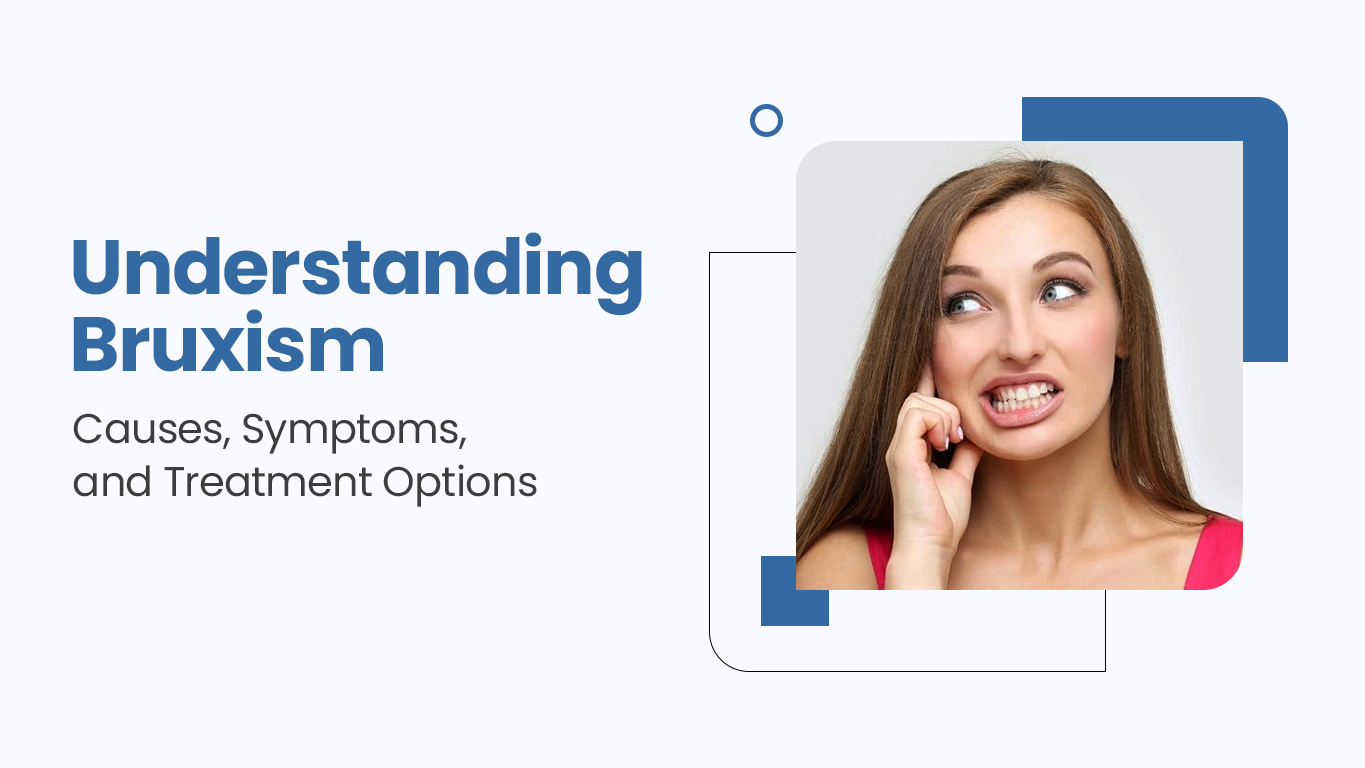Understanding Bruxism: Causes, Symptoms, and Treatment Options

Bruxism is a condition that affects millions of people worldwide. Have you ever experienced a sore jaw upon waking or observed your teeth to be worn down? You might be one of the numerous people who have Bruxism if that is the case. The causes, signs, and available treatments for this widespread yet frequently misdiagnosed condition will all be covered in this article.
What is Bruxism?
Bruxism refers to the habit of grinding, clenching, or gnashing your teeth. While occasional teeth grinding may not cause significant harm, chronic Bruxism can lead to various oral health issues and discomfort. This condition can occur during both the day and night, with sleep-related Bruxism being more common.
Causes of Bruxism
-
Stress and Anxiety
Emotional stress and anxiety can manifest physically as Bruxism, leading to unconscious grinding of teeth as a way to cope with tension.
-
Malocclusion
Dental misalignment, also known as malocclusion, can cause uneven contact between teeth, leading to grinding and clenching.
-
Sleep Disorders
Bruxism is often associated with certain sleep disorders like sleep apnea, where breathing pauses during sleep, triggering teeth grinding.
-
Lifestyle Factors
Habits like excessive alcohol consumption, smoking, or consuming caffeine-rich beverages can contribute to bruxism.
Symptoms of Bruxism
Identifying the symptoms of bruxism is crucial to address the condition promptly. Common signs to watch out for include:
-
Teeth Sensitivity
Bruxism can lead to enamel wear, resulting in increased tooth sensitivity to temperature changes.
-
Jaw Pain and Headaches
Persistent jaw pain and morning headaches are frequent complaints among people with bruxism.
-
Worn-down Teeth
Dentists may notice flattened, chipped, or fractured teeth, indicating bruxism-related damage.
-
Disrupted Sleep
Bruxism can disrupt sleep patterns, leading to fatigue and daytime sleepiness.
Diagnosing Bruxism
If you suspect you have Bruxism, it’s essential to seek a professional dental evaluation. Dentists can diagnose Bruxism through:
-
Physical Examination
Dentists will examine your jaw, teeth, and mouth for signs of Bruxism.
-
Patient History
Sharing your symptoms and habits with the dentist can help in diagnosing the condition accurately.
-
Sleep Study
In cases of suspected sleep bruxism, a sleep study may be recommended to monitor jaw movements during sleep.
Treatment Options for Bruxism
Addressing Bruxism requires a multi-faceted approach, and treatment options may include:
-
Mouthguards and Splints
Custom-fit mouthguards or splints can protect teeth from grinding and alleviate pressure on the jaw.
-
Stress Management
Stress-reducing techniques like meditation, yoga, or counselling can help manage Bruxism triggered by anxiety.
-
Correcting Dental Issues
Dental treatments, such as orthodontics, can correct malocclusion, reducing teeth grinding.
-
Medications
Muscle relaxants or medications prescribed by dentists can help relax jaw muscles and reduce grinding.
-
Behavioural Therapy
In some cases, behavioural therapy can be beneficial in breaking the habit of teeth grinding.
Visit Springvale Dental Clinic for Bruxism Treatment
Despite being a common dental issue, Bruxism should not be ignored. You can take proactive measures to manage and alleviate Bruxism’s impact on your dental health and general well-being by being aware of its causes, recognizing its symptoms, and exploring treatment and preventative methods. Don’t forget to visit us at Springvale Dental Clinic for a thorough evaluation and individualized treatment plan if you suspect Bruxism.
Check out the Related Infographic: Avoid Dental Health Problems With Preventive Dentistry.



